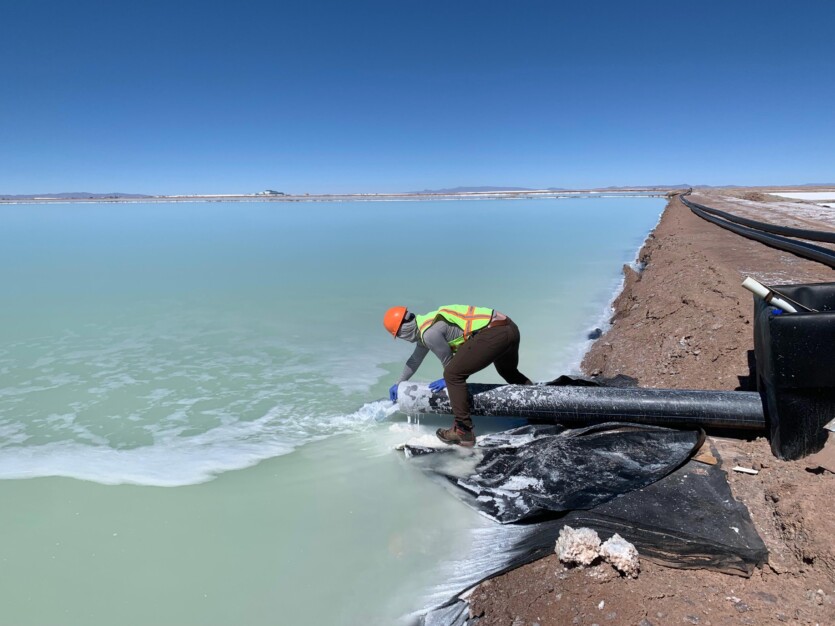
Scientists from Duke University in the United States have found that lithium-rich brine solutions contain a high concentration of boron.
This chemical composition distinguishes lithium salt brines from other saline waters, such as ocean water. This discovery could change the way lithium is mined and the way wastewater generated from mining is managed.
Currently, about 40% of global lithium production is concentrated in the so-called «lithium triangle» in South America and the Tibetan Plateau in Asia. In these regions, lithium is extracted from underground salt pools.
«We found that the pH of the brines in these regions is almost entirely determined by boron, unlike seawater and other conventional saline waters. It’s a completely different geochemical landscape, as if you were studying an extraterrestrial planet», — says study leader professor Avner Vengosh.
The pH of a solution determines its level of acidity or alkalinity. In most natural waters, chemical reactions involving the carbonate molecule affect the pH level, determining alkalinity. However, scientists have discovered that in a large salt lake Salar de Uyuni on the plateau in Bolivia, under which the world’s largest lithium-rich salt solutions are located, completely different chemical reactions take place.
The researchers analyzed the pH and chemical composition of the brines and salts associated with mining on the Uyuni salt marsh. Lithium mining typically involves pumping natural brine from the ground to a series of shallow above-ground ponds. The liquid evaporates from these ponds, leaving a concentrated brine containing lithium and boron.

The scientists found that the pH level in the natural brine samples was close to neutral. However, the brine samples from evaporation ponds had very high acidity levels. The modeling results showed that high boron concentration was a key factor in the pH level in both cases.
Natural brines contain high levels of boron in the form of boric acid and borates, the relative distribution of which determines the pH level. Evaporation in the ponds increases the total boron concentration and leads to the breakdown of boric acid, generating hydrogen ions that lower the pH.
«As a result of a series of geochemical reactions, carbonate alkalinity in the brine from the Uyuni salt marsh decreases, while boric alkalinity begins to prevail», — says the lead author of the study from the Vengosh laboratory Gordon Williams.
To support their findings, the researchers collected data from more than 300 analyses of lithium-rich solutions from various salt basins, including those in Chile, Argentina, Bolivia, and the Tibetan Plateau. The modeling results showed that boron had the greatest impact on alkalinity and pH in most brines.
«In addition to our new data, we have compiled a geochemical database of lithium brines from around the world and have consistently found that boron is often a key component of brine alkalinity and controls its pH, confirming the results obtained at the Uyuni salt marsh in Bolivia», — Gordon Williams added.
According to the researchers, their work has demonstrated for the first time the role of boron in the chemical changes that occur during the evaporation of lithium brine in salt vats. The results may provide information on future lithium mining technologies as the world explores ways to extract lithium more efficiently and safely waste water management.
Lithium mining is rapidly depleting South America’s water reserves, — study
The results of the study were published in the journal Science Advances
Source: SciTechDaily

Spelling error report
The following text will be sent to our editors: